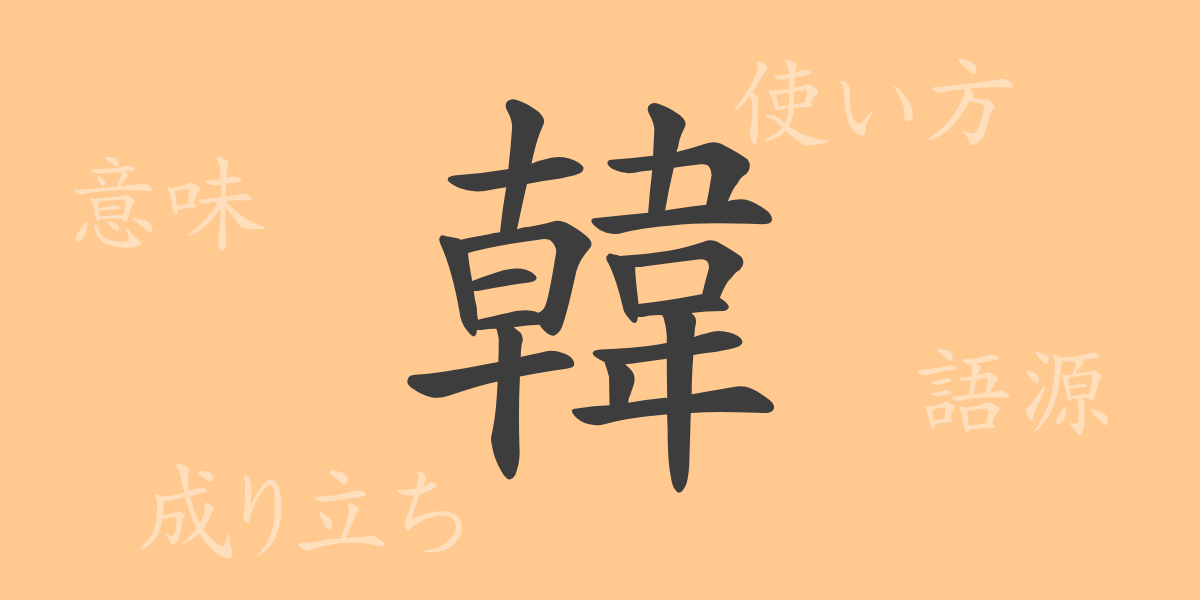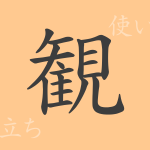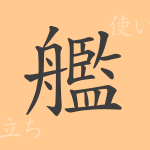Every character has a history, and within each, a culture and set of values are embedded. The Japanese kanji “韓” (Kan) is no exception. In this article, we delve into the meaning and origins of the character “韓” (Kan), as well as how it is used in the daily lives of Japanese people. We will explore the charm of the “韓” (Kan) character by tracing its evolution from ancient times to the present day.
The Origins (Etymology) of 韓 (Kan)
The character “韓” (Kan) originates from ancient China, named after the Han (Kan) state during the Three Kingdoms period. It became used as a term to refer to the people and the country, and this usage was adopted in Japan along with the introduction of kanji as part of cultural exchange. The shape of the character has undergone several changes throughout history and has now settled as a common kanji used today.
The Meaning and Usage of 韓 (Kan)
The character “韓” (Kan) primarily refers to the country name “South Korea.” However, it also encompasses historical backgrounds and cultural nuances. For example, the term “Korean Wave” (韓流, Kanryuu) refers to the spread of South Korean culture and entertainment abroad, including in Japan, and holds a significant place in Japanese youth culture.
How to Read 韓 (Kan), Number of Strokes, and Radical
Let’s take a closer look at the reading, structure, and composition of the kanji “韓” (Kan).
- Reading: The on’yomi (Sino-Japanese reading) is “KAN”, and there is no particular kun’yomi (native Japanese reading).
- Number of Strokes: 18
- Radical: 韋 ( OOGAI)
Idioms, Common Phrases, and Proverbs Using 韓 (Kan) and Their Meanings
There are various idioms and phrases that include the character “韓” (Kan), such as:
- Korean cuisine (韓国料理, Kankokuryouri) – Refers to traditional Korean dishes.
- Korean Wave dramas (韓流ドラマ, Kanryuudorama) – TV dramas produced in South Korea.
- Carmine (韓紅, Karakurenai) – A red dye made from safflower produced in Korea.
These idioms and phrases indicate the penetration of Korean culture and products into Japan.
Conclusion on 韓 (Kan)
The kanji “韓” (Kan) is not only a character referring to South Korea but also carries cultural significance and is widely used in the lives of Japanese people. The influence of the Korean Wave culture extends beyond language to food, fashion, and entertainment, and the impact of the “韓” (Kan) character is immeasurable. Through the character “韓” (Kan), the exchange between the two countries is expected to deepen even further in the future.

























